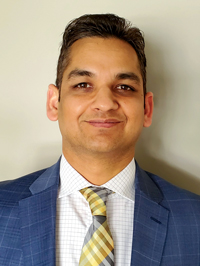 By Ram Verma, MD
By Ram Verma, MD
In the high-pressure world of medicine, physicians face relentless demands that push them to their limits. The long hours, the emotional intensity, and the weight of life-or-death decisions create a perfect storm for chronic stress and burnout. Amidst this crisis, a crucial factor often falls by the wayside – sleep. Quality sleep is not merely a luxury for physicians; it's a critical weapon in safeguarding their well-being and preventing the debilitating effects of burnout.
The alarming state of sleep deprivation among physicians
Studies paint a troubling picture:
- Many physicians routinely sleep less than the recommended seven to eight hours per night.
- Sleep deprivation is linked to increased rates of medical errors, jeopardizing patient safety.
- Physicians with compromised sleep are more prone to depression, anxiety, and substance abuse.
- The emotional exhaustion characteristic of burnout is intensified by inadequate sleep.
These statistics are more than just numbers; they represent the compromised well-being of those who dedicate their lives to healing others.
The vicious cycle of sleep deprivation and burnout
Physicians routinely sacrifice sleep due to extended work hours, overnight shifts, and ever-present on-call responsibilities. This chronic sleep deprivation throws a wrench into the body's finely-tuned systems, setting off a cascade of negative consequences.
- Cognitive decline: Sleep is like a reset button for the brain. Without it, concentration wavers, memory falters, and decision-making becomes impaired. In a profession where precision and critical thinking are paramount, these effects can be disastrous.
- Emotional dysregulation: Sleep deprivation erodes emotional resilience. Irritability, anxiety, and a decreased ability to cope with stressors become pervasive. The compassion and empathy that are cornerstones of patient care suffer as a result.
- Physical toll: Chronic sleep loss weakens the immune system, increases inflammation, and raises the risk of chronic diseases like heart disease, diabetes, and obesity. It disrupts hormonal balance, ultimately making physicians more vulnerable to both physical and mental health problems.
Restorative power: How sleep rescues physicians
The transformative benefits of quality sleep extend far beyond mere restfulness. Sleep serves as a vital repair and recovery process for both the body and the mind.
- Mental restoration: During sleep, the brain consolidates memories, sorts through emotions, and replenishes its stores of focus and attention. This allows physicians to wake up with improved clarity and mental sharpness.
- Emotional recharge: Deep sleep is essential for regulating mood and emotional processing. Getting enough sleep helps physicians maintain their composure, build resilience, and ward off the cynicism and detachment that are hallmarks of burnout.
- Physical rejuvenation: Sleep is when the body repairs tissues, builds muscle, and bolsters the immune system. Adequate sleep empowers physicians with the energy and physical health to tackle their demanding work.
Strategies for physicians to prioritize sleep
Recognizing the importance of sleep is the first step; turning this into action requires concrete strategies. Here are some ways physicians can improve their sleep:
- Establish a regular routine: Aim for a consistent bedtime and wake-up time, even on weekends. This aligns with the body's natural circadian rhythm, promoting better sleep quality.
- Create a sleep sanctuary: Make the bedroom dark, quiet, and cool. Blackout curtains, earplugs, and a comfortable temperature can enhance the sleep environment.
- Optimize sleep hygiene: Avoid caffeine and alcohol before bed, wind down with relaxing activities like reading or taking a warm bath, and minimize screen time the hour before sleep.
- Monitor sleep and nocturnal oxygen with wearable devices: In this era of artificial intelligence, there are many wearable devices that can track oxygen and sleep. Hospital systems should consider gifting or allocating funds for these technologies, which can give wearers a fair idea of their quality and quantity of sleep.
- Address sleep disorders: If you suspect an underlying sleep issue, such as sleep apnea, seek professional evaluation and treatment.
- Systemic support: Advocate for workplace policies and schedules that promote physician well-being and prioritize adequate rest. Hospitals can take steps to minimize calls by putting more procedures and policies for subordinate staff.
The benefits of investing in sleep
When physicians make sleep a non-negotiable part of their lives, the positive ripple effects are remarkable. They experience improved mental clarity, enhanced decision-making, stronger emotional fortitude, and greater physical health. This translates into better patient care, increased job satisfaction, and a more fulfilling career.
The battle against physician burnout is complex and multifaceted. However, by understanding the profound connection between sleep and well-being, physicians and healthcare systems can take decisive steps toward a culture that values and supports restorative rest. When a good night's sleep becomes the norm, physicians and their patients reap the rewards.
Dr. Verma is a member of ISMA’s Physician Wellness Steering Committee.